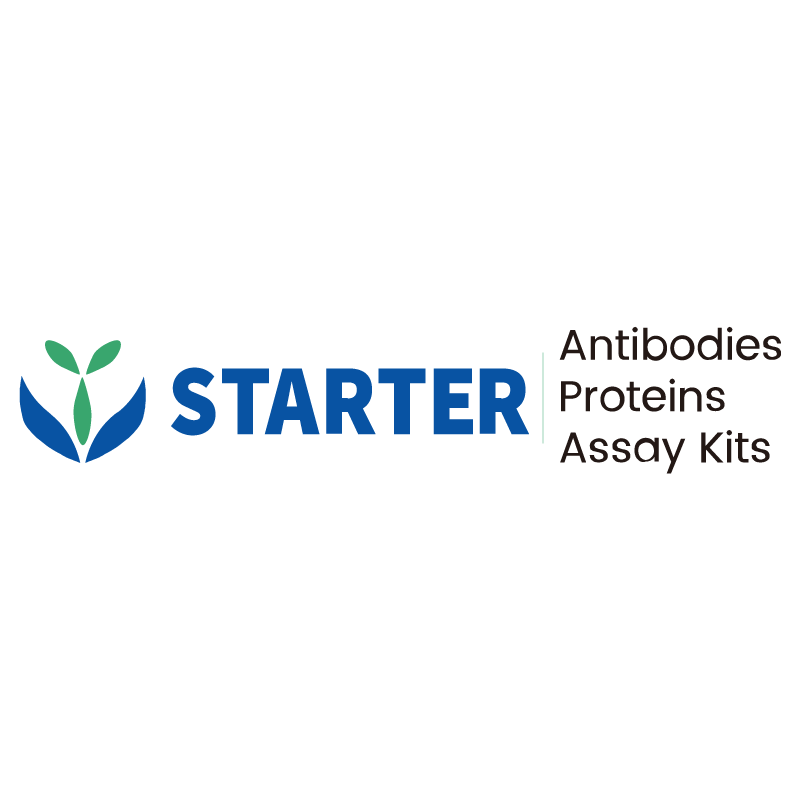IHC shows positive staining in paraffin-embedded human liver. Anti-MDR3 antibody was used at 1/1000 dilution, followed by a HRP Polymer for Mouse & Rabbit IgG (ready to use). Counterstained with hematoxylin. Heat mediated antigen retrieval with Tris/EDTA buffer pH9.0 was performed before commencing with IHC staining protocol.
Product Details
Product Details
Product Specification
| Host | Rabbit |
| Antigen | MDR3 |
| Synonyms | Phosphatidylcholine translocator ABCB4; ATP-binding cassette sub-family B member 4; Multidrug resistance protein 3; P-glycoprotein 3; MDR3; PGY3; ABCB4 |
| Immunogen | Synthetic Peptide |
| Location | Cell membrane, Cytoplasm |
| Accession | P21439 |
| Clone Number | SDT-1949-60 |
| Antibody Type | Recombinant mAb |
| Isotype | IgG |
| Application | IHC-P, IF |
| Reactivity | Hu, Ms, Rt |
| Positive Sample | Human liver, mouse liver, rat liver |
| Purification | Protein A |
| Concentration | 0.5 mg/ml |
| Conjugation | Unconjugated |
| Physical Appearance | Liquid |
| Storage Buffer | PBS, 40% Glycerol, 0.05% BSA, 0.03% Proclin 300 |
| Stability & Storage | 12 months from date of receipt / reconstitution, -20 °C as supplied |
Dilution
| application | dilution | species |
| IHC-P | 1:1000 | Hu, Ms, Rt |
| IF | 1:500-1:1000 | Hu, Ms, Rt |
Background
Multidrug Resistance Protein 3 (MDR3), also known as ATP-binding cassette sub-family B member 4 (ABCB4), is a crucial protein primarily expressed in the canalicular membrane of hepatocytes. It functions as a phosphatidylcholine translocase, transporting this phospholipid from the inner to the outer leaflet of the membrane bilayer and into bile. This process is essential for forming mixed micelles with bile salts, protecting the biliary tree from the detergent-like toxicity of bile salts. MDR3 plays a significant role in bile formation and preventing cholestasis. Mutations in the ABCB4 gene can lead to severe liver disorders, such as Progressive Familial Intrahepatic Cholestasis type 3 (PFIC3), characterized by early-onset cholestasis, liver fibrosis, and eventual liver failure. Additionally, MDR3 dysfunction has been linked to drug-induced liver injury (DILI) due to its inhibition by certain drugs or their metabolites.
Picture
Picture
Immunohistochemistry
Negative control: IHC shows negative staining in paraffin-embedded human colon. Anti-MDR3 antibody was used at 1/1000 dilution, followed by a HRP Polymer for Mouse & Rabbit IgG (ready to use). Counterstained with hematoxylin. Heat mediated antigen retrieval with Tris/EDTA buffer pH9.0 was performed before commencing with IHC staining protocol.
Negative control: IHC shows negative staining in paraffin-embedded human kidney. Anti-MDR3 antibody was used at 1/1000 dilution, followed by a HRP Polymer for Mouse & Rabbit IgG (ready to use). Counterstained with hematoxylin. Heat mediated antigen retrieval with Tris/EDTA buffer pH9.0 was performed before commencing with IHC staining protocol.
Negative control: IHC shows negative staining in paraffin-embedded human breast cancer. Anti-MDR3 antibody was used at 1/1000 dilution, followed by a HRP Polymer for Mouse & Rabbit IgG (ready to use). Counterstained with hematoxylin. Heat mediated antigen retrieval with Tris/EDTA buffer pH9.0 was performed before commencing with IHC staining protocol.
Negative control: IHC shows negative staining in paraffin-embedded human cervical squamous cell carcinoma. Anti-MDR3 antibody was used at 1/1000 dilution, followed by a HRP Polymer for Mouse & Rabbit IgG (ready to use). Counterstained with hematoxylin. Heat mediated antigen retrieval with Tris/EDTA buffer pH9.0 was performed before commencing with IHC staining protocol.
IHC shows positive staining in paraffin-embedded mouse liver. Anti-MDR3 antibody was used at 1/1000 dilution, followed by a HRP Polymer for Mouse & Rabbit IgG (ready to use). Counterstained with hematoxylin. Heat mediated antigen retrieval with Tris/EDTA buffer pH9.0 was performed before commencing with IHC staining protocol.
IHC shows positive staining in paraffin-embedded rat liver. Anti-MDR3 antibody was used at 1/1000 dilution, followed by a HRP Polymer for Mouse & Rabbit IgG (ready to use). Counterstained with hematoxylin. Heat mediated antigen retrieval with Tris/EDTA buffer pH9.0 was performed before commencing with IHC staining protocol.
Immunofluorescence
IF shows positive staining in paraffin-embedded human liver. Anti-MDR3 antibody was used at 1/1000 dilution (Green) and incubated overnight at 4°C. Goat polyclonal Antibody to Rabbit IgG - H&L (Alexa Fluor® 488) was used as secondary antibody at 1/1000 dilution. Counterstained with DAPI (Blue). Heat mediated antigen retrieval with EDTA buffer pH9.0 was performed before commencing with IF staining protocol.
IF shows positive staining in paraffin-embedded mouse liver. Anti-MDR3 antibody was used at 1/1000 dilution (Green) and incubated overnight at 4°C. Goat polyclonal Antibody to Rabbit IgG - H&L (Alexa Fluor® 488) was used as secondary antibody at 1/1000 dilution. Counterstained with DAPI (Blue). Heat mediated antigen retrieval with EDTA buffer pH9.0 was performed before commencing with IF staining protocol.
IF shows positive staining in paraffin-embedded rat liver. Anti-MDR3 antibody was used at 1/500 dilution (Green) and incubated overnight at 4°C. Goat polyclonal Antibody to Rabbit IgG - H&L (Alexa Fluor® 488) was used as secondary antibody at 1/1000 dilution. Counterstained with DAPI (Blue). Heat mediated antigen retrieval with EDTA buffer pH9.0 was performed before commencing with IF staining protocol.


